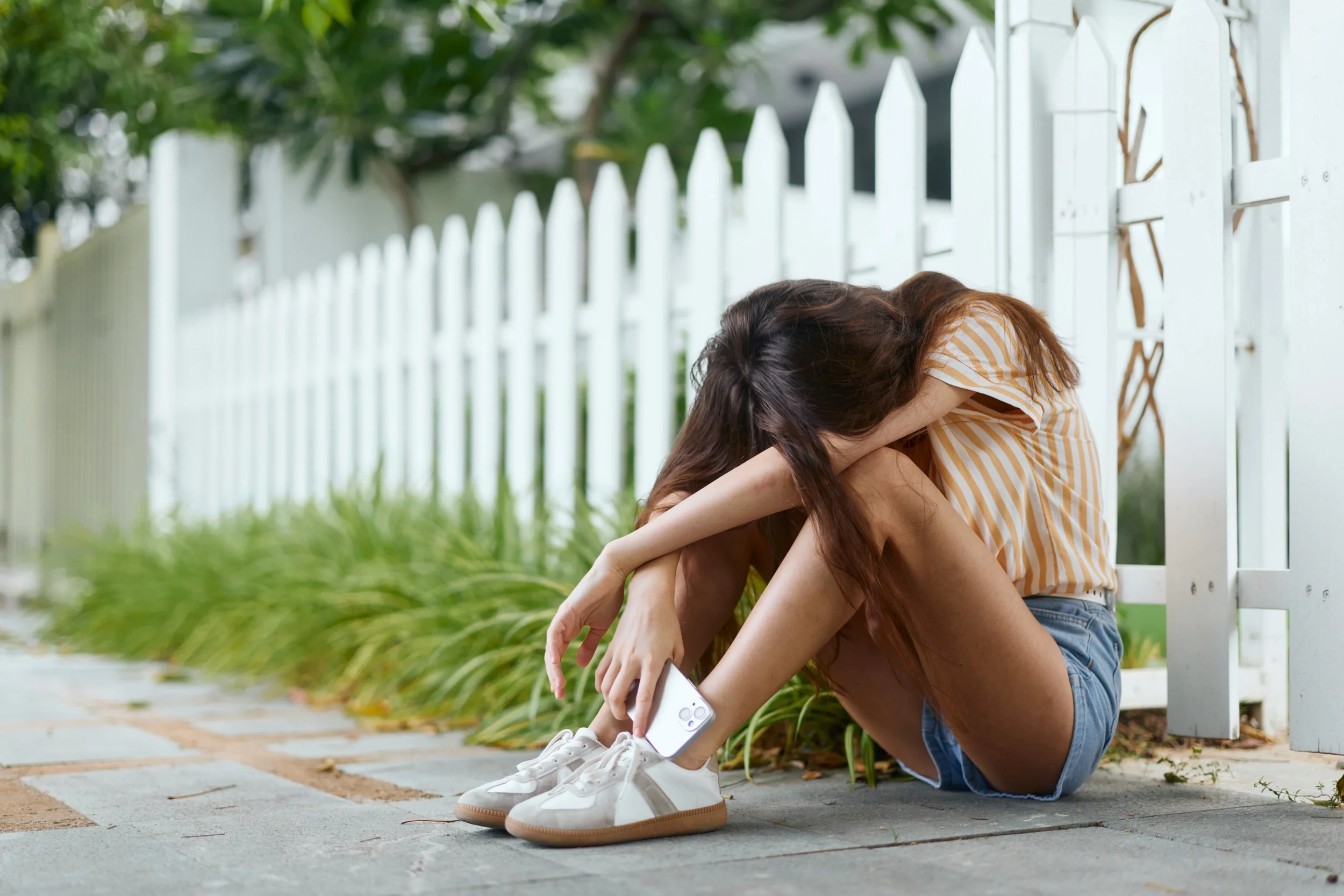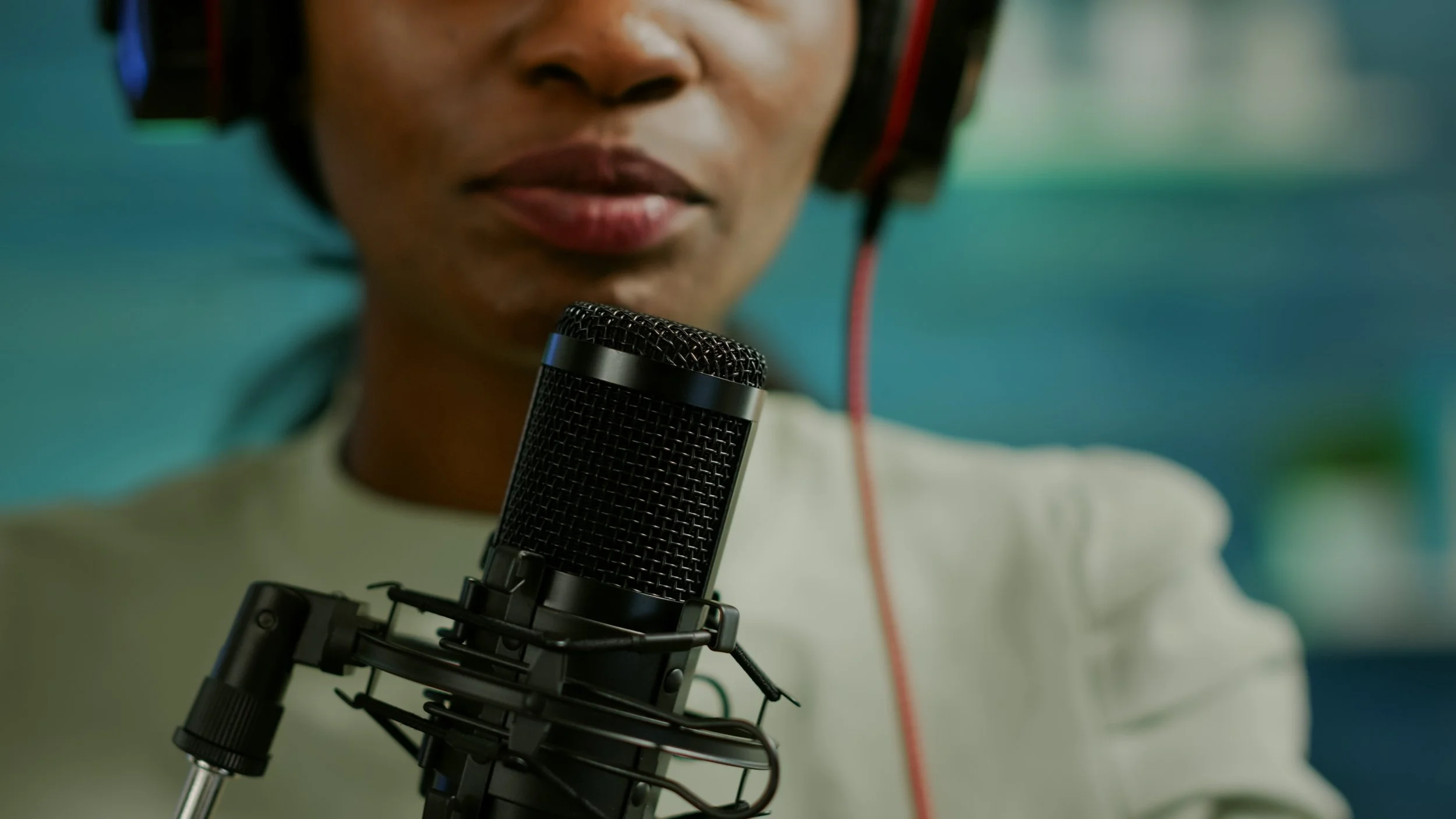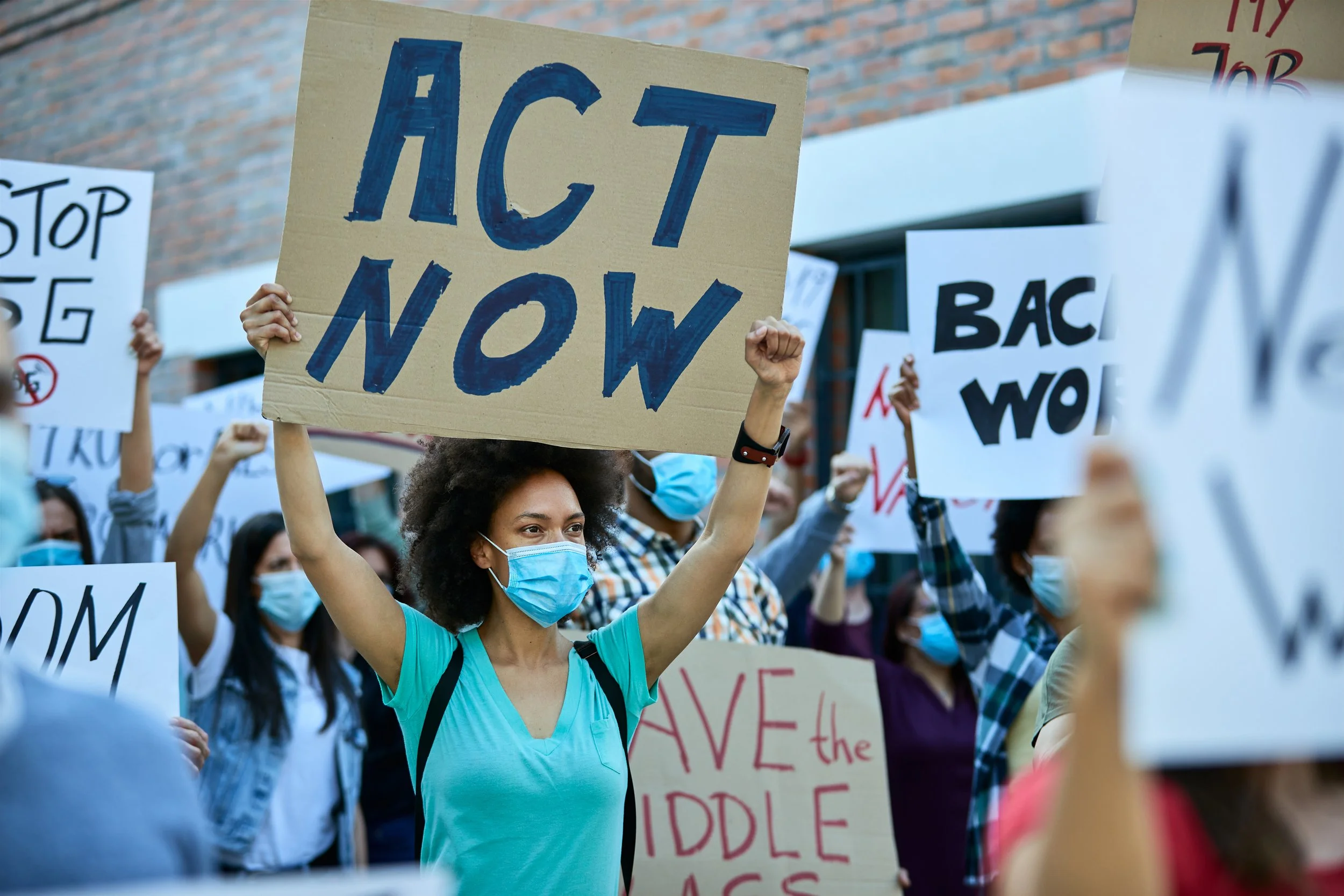When Vogue and Guess Go Full-Avatar: Why AI 'Models' Are the New Beauty Battlefront
Here I am, crammed into the bus from work, like a slightly caffeinated sardine, balancing my too-hot latte while doom-scrolling through Instagram stories. You know the drill, another Tuesday morning spent simultaneously avoiding eye contact with strangers and pretending I'm not mentally calculating whether I can afford that $18 salad for lunch again.
Then it happens. I flip past my friend's blurry gym selfie (good for her, honestly) and land on something that makes me stop mid-sip. There, nestled between influencer smoothie bowls and anxiety memes, is a gorgeous blonde woman lounging at a café in the most perfectly draped blue floral romper I've ever seen. She's got that ethereal, just-rolled-out-of-bed-but-make-it-Vogue energy, complete with impossibly symmetrical features and skin that's literally glowing.
My first thought? "Damn, I need that outfit." My second? "Why does my morning coffee ritual look like a sleep-deprived goblin convention compared to this aesthetic perfection?"
But then my caffeine-addled brain notices something off. The lighting is too perfect. The pose is too effortless. The skin is too flawless, like, not even concealer commercial flawless, but uncanny valley smooth. I squint at the fine print in the corner, and that's when I see it: "Produced by Seraphinne Vallora on AI."
Cue the latte-to-sleeve disaster. Because apparently, I've just spent thirty seconds of my life feeling inadequate compared to a computer-generated woman who doesn't even exist.
PS: My sleeve is now 50% latte stain, 50% existential crisis.
The New Beauty Ad Wars
Turns out, I wasn't alone in my caffeine-induced revelation. Vogue's August 2025 print edition featured a two-page Guess advertisement starring a fully AI-generated model, created by marketing agency Seraphinne Vallora. The digital blonde goddess appeared in two poses, sitting at that café table in her romper, and later leaning against a boutique wall in a black-and-white chevron dress.
The internet, predictably, lost its collective mind. Social media exploded with reactions like "boycott Vogue NOW! they're pushing out models for AI" and "Had to end the Vogue magazine subscription I've had for years because the latest magazine used AI models???" The hashtag wars were swift and brutal because nothing gets the people going quite like the intersection of technology, beauty standards, and capitalism.
The backlash hit because this wasn't just another tech experiment; it was Vogue legitimizing a future where humans need not apply.
A Teenager's Breaking Point
Last week, my friend from Portland sent me a DM that stopped me cold. She'd been scrolling through fashion content when she came across an AI model campaign. "I literally started crying," she wrote. "Like, I can't even compete with real models, and now I have to compete with ones that don't exist? I looked in the mirror and just felt so... wrong."
That's the gut punch of this moment. We're not just talking about job displacement or industry innovation; we're talking about an entire generation learning that their natural human form is no longer magazine-worthy.
When perfection becomes literally impossible to achieve, what impact does that have on a young person's sense of self-worth?
Why AI Models Upend Everything
Here's what makes this different from the airbrushing wars of the past: AI models aren't enhanced humans, they're digital creations playing by entirely different rules. As Australian lawmaker David Shoebridge put it, "These digitally 'perfect' bodies don't exist, but the mental health damage to young people will be real."
Think about it. We've spent decades fighting for body positivity, celebrating when brands showed stretch marks and cellulite, when models with vitiligo and limb differences graced magazine covers. We've even come to terms with Instagram being a highlight reel.
But AI models never have bad angles, never get pimples, never bloat after pizza, and definitely never have arm jiggle. The bar for "perfect" just got raised to literally impossible heights. As one social media user reflected, "We knew the damage just airbrushing models had on young girls… Imagine growing up seeing AI women and that being the new beauty standard."
We're all being asked to compete with someone who exists only in pixels.
Voices from the Trenches
The reactions online have been a mix of heartbreak and fury that hit right in the feelings. One TikToker summed up what many are thinking: "No actual human being has body proportions naturally like this with that symmetrical of a face and that airbrushed skin."
Plus-size model Felicity Hayward, who's been in the industry for over a decade, called using AI models "lazy and cheap." Meanwhile, on Reddit, one user captured the broader fear: "Women are being held to unrealistic beauty standards by these magazines, and now the beauty standards are going to be set by people who don't even exist?!"
Dr. Rachel Calogero, who studies body image psychology at the University of the West of England, warns: "When we normalize digitally perfect humans as beauty standards, we're essentially telling real humans that their natural form isn't acceptable. The psychological impact on developing minds could be profound."
These aren't just complaints about technology; they're cries from people watching their sense of self-worth get digitally erased.
The Tool-or-Weapon Debate
Seraphinne Vallora's founders defend their work as innovation, not replacement. "We're offering companies another choice in how they market a product," says co-founder Andreea Petrescu. They position AI as just another creative tool, like Photoshop before it.
But Sara Ziff, founder of Model Alliance, sees through the spin: "This is less about innovation and more about desperation to cut costs." The technology affects not just models, but photographers, makeup artists, and production staff. When their website boasts about "eliminating expenses for photographers, models, venues, and travel," the cost-cutting motive becomes crystal clear.
The question isn't whether AI will be used, it's whether we'll let it steamroll the humans who built this industry.
From Outrage to Action
Okay, we're all appropriately horrified. Now what? Rage-posting feels good, but it doesn't change the algorithm that feeds us digitally perfect humans, designed to make us feel inadequate. Let's get practical.
Challenge 1: "Spot the Bot" Train your eye to catch AI-generated images. Look for skin that's too perfect, impossibly even lighting, and backgrounds that seem slightly off. Check for fine print disclaimers. Make it a game to see who can spot the AI model first? Share your finds in the comments below and tag friends to join the hunt.
Challenge 2: "Real-Body Regram" For every AI-perfect image you see, share one unfiltered selfie with #RealBodyRegram. Bad lighting, welcome. Morning hair encouraged. Show your actual smile lines, your real proportions, your beautiful human imperfections. Let's flood social media with authentic humanity. Share your #RealBodyRegram stories. I want to celebrate every single one of them.
Challenge 3: "Write to Rights" Template time. Send this to your favorite brands:
"As a loyal customer, I value authentic representation and believe real human models should be the face of fashion. I'm more likely to support brands that commit to using real people in their campaigns. Please consider the impact on both your workforce and customers when making AI decisions."
Forward it. Make noise. Your voice matters more than you think.
Each email, each unfiltered selfie, each called-out AI image is a vote for authentic humanity.
We Will Not Chase Ghosts
Here's what I want you to remember: you are not competing with a computer. Your worth isn't measured against someone who exists only in ones and zeros. Your beauty, with all its gorgeous, messy, human imperfections, is real in a way no algorithm can replicate.
That perfectly posed AI model will never know the satisfaction of finishing an excellent book, or the joy of ugly crying at a rom-com, or the simple pleasure of a friend making you laugh until your stomach hurts. She'll never know what it feels like to be fully, messily, beautifully human.
We will no longer chase ghosts in the machine. We are flesh, flawed and brilliant, and our stories, stained lattes and all, are the true future of beauty.
And honestly? That's exactly as it should be.
By Sypharany.







